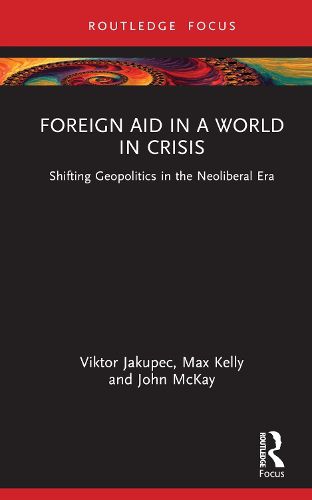Readings Newsletter
Become a Readings Member to make your shopping experience even easier.
Sign in or sign up for free!
You’re not far away from qualifying for FREE standard shipping within Australia
You’ve qualified for FREE standard shipping within Australia
The cart is loading…






This book investigates the geopoliticisation of foreign aid in recent years, against a background of global overarching crises such as climate change, conflict, Covid-19, economic crisis, energy shortages and migration.
Foreign aid has historically been understood as assisting both with the development objectives of the recipients and with the trade and geopolitical interests of the donors. In the first decades of the 21st century, however, this balance has been shifted by a series of complex global challenges. This book argues that donors have now moved towards framing aid as a geopolitical instrument, wherein aid can be given or withheld based on power or political intent, thus imposing the donor's specific values and norms. This book provides an in-depth analysis of this weaponisation of foreign aid within a framework of global disruption and ultimately concludes that the world is at a tipping point towards a new socio-political world order.
Asking important questions about the power dynamics at play within the aid sector, this book will be an important read for researchers across development studies, political science, international relations and global affairs.
$9.00 standard shipping within Australia
FREE standard shipping within Australia for orders over $100.00
Express & International shipping calculated at checkout
This book investigates the geopoliticisation of foreign aid in recent years, against a background of global overarching crises such as climate change, conflict, Covid-19, economic crisis, energy shortages and migration.
Foreign aid has historically been understood as assisting both with the development objectives of the recipients and with the trade and geopolitical interests of the donors. In the first decades of the 21st century, however, this balance has been shifted by a series of complex global challenges. This book argues that donors have now moved towards framing aid as a geopolitical instrument, wherein aid can be given or withheld based on power or political intent, thus imposing the donor's specific values and norms. This book provides an in-depth analysis of this weaponisation of foreign aid within a framework of global disruption and ultimately concludes that the world is at a tipping point towards a new socio-political world order.
Asking important questions about the power dynamics at play within the aid sector, this book will be an important read for researchers across development studies, political science, international relations and global affairs.